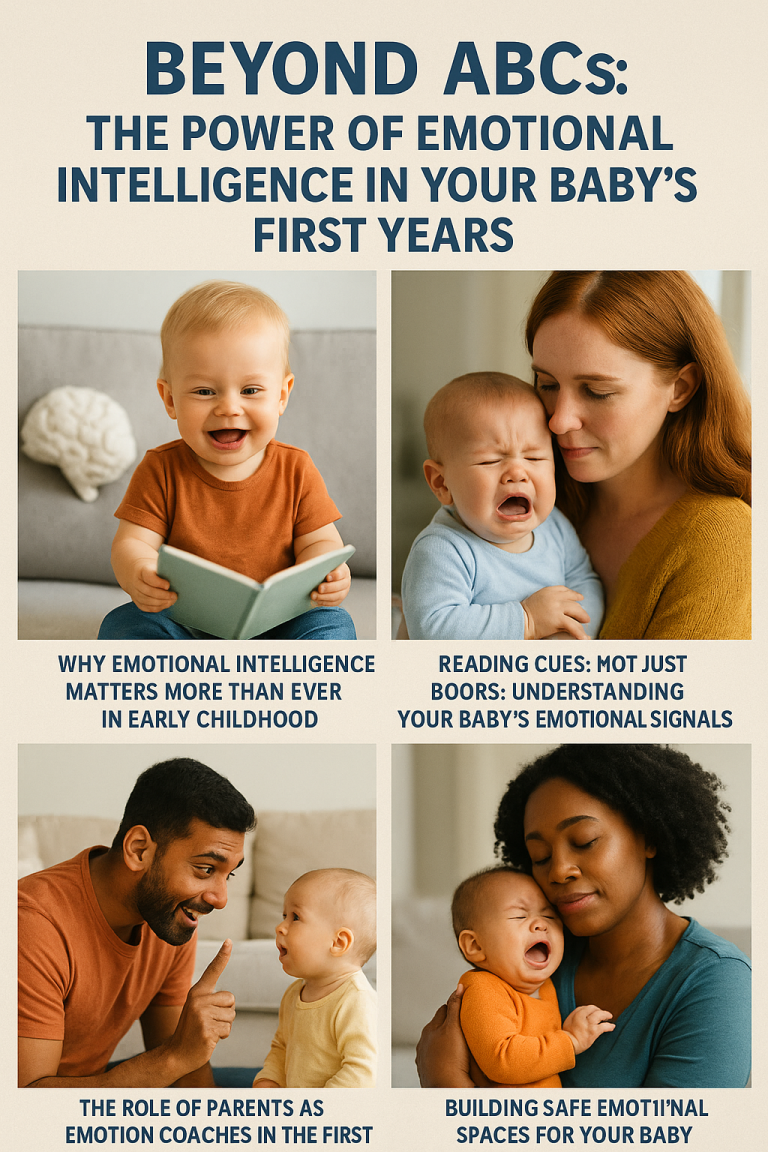
There’s a romantic myth that love alone can sustain a family—that sheer emotional devotion is enough to weather every storm. Yet even the most steadfast hearts buckle under chronic exhaustion. Parental burnout is not merely a modern affliction; it is a silent, creeping force that chips away at the foundations of connection, leaving both parents and children adrift in emotional dissonance. When fatigue becomes a way of life, the home—once a sanctuary—transforms into a space of tension, guilt, and emotional distance.
In the quiet corners of countless homes, love flickers beneath layers of overwhelm. But love, potent as it is, has limits. Without rest, support, and conscious healing, even love can begin to erode.
The Erosion of Connection: How Exhaustion Undermines Parental Warmth and Responsiveness
The parent-child bond thrives not only on love but also on consistent presence, emotional availability, and attentiveness. Exhaustion, however, acts like slow acid—corroding these crucial qualities.
When a parent is chronically drained, their ability to respond with sensitivity diminishes. A once-patient mother may find herself snapping at minor infractions. A formerly engaged father may now retreat behind a screen or disappear into tasks, unable to muster the energy for connection.
This erosion of connection doesn’t happen overnight. It’s subtle. It’s in the “just a minute” that becomes an hour. It’s in the unread bedtime story, the skipped cuddle, the unasked question about their day. Over time, the small lapses compound, and the warmth that once infused everyday moments begins to feel distant or performative.
And children, with their emotional radar fine-tuned, feel the shift. They may not have the vocabulary to name it, but they know when warmth turns cool.
Beyond Affection: When Overwhelm Leads to Irritability and Emotional Distance with Children
Parental affection alone cannot compensate for the emotional energy that nurturing requires. When caregivers are drowning in demands—career pressures, household responsibilities, social obligations—their capacity to be fully present thins.
The result? Beyond affection, what’s left is a brittle shell. The gestures of love may still occur—meals made, rides given, routines maintained—but the emotional resonance begins to fade. Instead of joyful connection, interactions become functional, transactional, or tinged with resentment.
Overwhelm transforms gentle voices into sharp tones. The weary sighs become more frequent. Patience is replaced by sarcasm. Eye contact is avoided. Hugs become hurried. Children don’t just feel the emotional absence—they absorb it.
And they often interpret it personally: “Maybe I did something wrong.” “Maybe I’m too much.” Emotional distance with children, born from burnout, plants seeds of insecurity that can echo through their development.
The Silent Struggle: How Parental Burnout Manifests as Detachment and Reduced Engagement with Kids
Unlike the dramatic meltdowns of toddlerhood or the slammed doors of adolescence, parental burnout rarely announces itself with fireworks. It is, instead, a quiet unraveling.
This silent struggle hides behind polite smiles and perfectly packed lunches. It wears the mask of “doing it all” while slowly disengaging from the joy of doing anything at all.
Parents begin to go through the motions. Reading stories feels like a chore. Playing games is avoided. Emotional check-ins dwindle. Laughter—once abundant—feels like a distant memory.
Children may begin to mimic this detachment. They play alone more. They stop asking for help with homework. They retreat into their own screens and silences.
The tragedy of this phase is its invisibility. From the outside, everything may appear fine. But within the home, the soul of the relationship grows quiet, estranged not by lack of love, but by the suffocating fog of unacknowledged fatigue.
From Nurturer to Reactor: How Chronic Stress Transforms Parental Interactions and Creates Tension
In healthy states, parents nurture. They listen, anticipate needs, provide comfort. But under chronic stress, the dynamic changes. The parent shifts from proactive guide to reactive guardian.
From nurturer to reactor, the transformation is often involuntary. Emotional reserves depleted, parents respond to behaviors rather than emotions. A spilled cup becomes an offense, not an accident. A whine feels like a threat, not a plea.
Reactivity breeds tension. Children, sensing volatility, either escalate or withdraw. Their own needs may become distorted as they seek to avoid triggering their caregiver’s stress response.
These reactive patterns create a feedback loop: the more the parent reacts, the more tension rises, and the harder it becomes to reestablish calm. This cycle can become entrenched, redefining the parent-child relationship in ways that are hard to untangle.
The Child’s Perspective: Experiencing Parental Burnout as Rejection, Neglect, or Lack of Attunement
What burnout feels like to a parent and what it feels like to a child are starkly different. While the parent may be consumed by internal battles—fatigue, guilt, stress—the child experiences a shift in the relational atmosphere.
From their vantage point, parental burnout can feel like rejection, even if unintentionally conveyed. A missed recital, a forgotten promise, an irritated sigh—all these moments imprint deeply.
Children thrive on attunement—the sense that their inner worlds are seen and understood. When a parent is emotionally unavailable, even if physically present, this attunement falters. The child may begin to feel neglected, not necessarily in care but in presence.
This perceived lack can shape self-esteem. It can lead to anxious attachment or emotional withdrawal. The narrative that begins to form—”I’m not important enough” or “I’m a burden”—can influence how the child relates to others for years to come.
Repairing the Rift: Strategies for Rebuilding Connection After Parental Burnout Has Taken Its Toll
Acknowledging the rupture is the first step toward repair. Reconnection requires humility, patience, and the courage to show up—even imperfectly.
Repairing the rift is not about grand gestures. It’s about small, consistent moments of presence. Sitting beside them during quiet time. Apologizing sincerely for missed cues. Making eye contact and truly listening.
Rebuilding trust involves naming the experience. Telling a child, in age-appropriate terms, “I’ve been tired and not as present as I want to be,” validates their reality.
Rituals can also be powerful: a shared morning walk, a nightly chat, weekend cooking together. These anchor points signal that the relationship matters—that they matter.
And equally vital is the parent’s own healing. Rest, therapy, community support, and self-compassion are not indulgences; they are necessities. The burnt-out parent cannot offer what they do not have. Replenishing emotional energy is an act of love not just for the self, but for the child.
More Than Just Love: Recognizing the Essential Role of Parental Well-being in Fostering Healthy Child Development
It’s time we expand our understanding of parenting beyond sacrificial love. Children need more than affection—they need attuned, well-regulated caregivers who can model emotional health.
More than just love, children need caregivers who know how to rest, how to repair, how to ask for help. Parental well-being is not a luxury. It is the ecosystem in which healthy development takes root.
A parent who feels whole is more likely to respond with empathy, to set consistent boundaries, to co-regulate during meltdowns, and to nurture emotional resilience.
Society must shift its lens from applauding parental self-sacrifice to honoring parental self-sustainability. Employers, communities, partners—all have a role in making this possible.
Investing in a parent’s mental health is an investment in a child’s future. It’s a generational intervention that begins with one simple truth: love alone is not enough. But love, coupled with rest and resilience, can be transformative.
The Invisible Epidemic
Parental burnout doesn’t always look dramatic. It often wears clean clothes, signs school forms, and makes dentist appointments. But it lives behind tired eyes, in irritable sighs, in the ache of going through the motions.
It hides in the coffee-fueled mornings and the wine-down nights. It shows up as guilt when snapping at a child, as shame when feeling nothing during moments that should spark joy.
It is an epidemic wrapped in silence—because to admit burnout feels like failure. But the real failure lies in pretending all is well while hearts wither in isolation.
Naming the burnout is an act of courage. Seeking help is a form of strength. And choosing to rebuild—no matter how late—restores the possibility of deep, nourishing connection.
The Anatomy of Disconnection
Disconnection rarely begins with a single rupture. It starts with subtle shifts.
The bedtime story skipped for one night.
The temper lost over spilled juice.
The game declined, again.
Each of these moments, on their own, seem small. But compounded over days and weeks, they alter the emotional climate of the household. The child senses unpredictability. The parent feels guilt. The dance of intimacy becomes a series of missed steps.
Disconnection, when ignored, calcifies. But when acknowledged, it can soften. Connection, like any living thing, needs attention, air, and light. It is never too late to tend to it.
What Burnout Teaches Us About Love
Love, in its deepest form, is not just the impulse to give—it is the wisdom to receive, to pause, to replenish.
Parental burnout reveals the limits of heroic parenting. It forces us to confront the lie that good parents never need help. It invites us to replace martyrdom with mindfulness.
It also teaches us that love must be sustainable. That affection must be supported by energy, presence, and self-regulation. That connection is built not just on hugs and bedtime kisses, but on eye contact, emotional safety, and shared joy.
In this way, burnout is not just a problem—it’s a mirror. It reflects what is unsustainable. And if we’re willing to look, really look, it can show us the path back home.
Reimagining Support for Parents
What if we treated parental burnout like we do any other health crisis? What if there were prevention programs, mental health days, community rest hubs?
What if new parents were taught not only how to feed their baby but how to preserve their own mental well-being?
What if workplaces respected the invisible labor of parenting by offering real flexibility, not just lip service?
And what if friends and family checked in not just to see the baby, but to ask the parent: “How are you really?”
We need to reimagine parenting culture. To elevate support over silence. Connection over performance. Community over perfection.
Parenting as a Long Game
The real magic of parenting isn’t in the perfect birthday party or the homemade snack. It’s in the accumulated moments of being there—fully, lovingly, consistently.
Burnout clouds the long view. It makes today feel like forever. But parenting is a long game. One moment of reconnection can undo a dozen moments of distance. A single apology can begin the healing.
Children are resilient, but they are also perceptive. They don’t need perfect parents. They need present ones. They need grownups who can say, “I got overwhelmed. I’m working on it. You matter to me.”
That’s how trust is built. That’s how bonds are repaired.
A Closing Reflection
Love is the foundation. But it is not the roof, the walls, or the warmth of a safe home. Those are built with rest, with regulation, with conscious effort.
When burnout burns away our best intentions, let us remember this: we can always begin again.
We can choose stillness over speed. Presence over perfection. And wholeness over hustle.
Because in the end, the greatest gift we give our children is not a tireless parent—it is a whole one.




